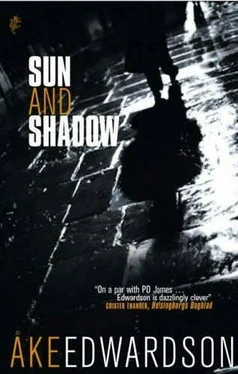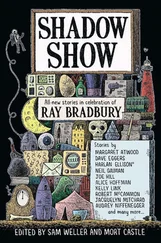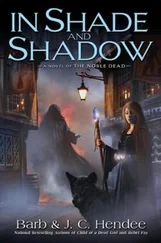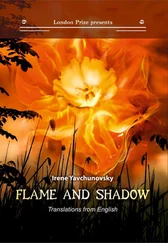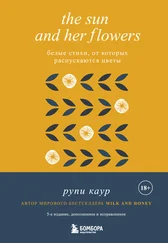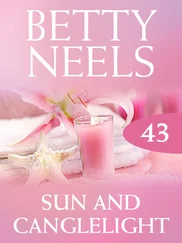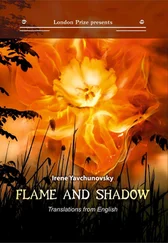“I suppose you get a lot of that kind of thing down there.”
“I haven’t tried any yet.”
“No tapas?”
“There hasn’t been any… time. I stayed at the hospital last night.”
“What was it like?”
“Better than being somewhere else. Anyway, make sure you get some salt down you, so that you don’t think so much about ghosts.”
“Mrs. Malmer?”
“Police cars.”
“I’ve bought some cola sweets as well.”
“Eat them with mashed anchovies and Parmesan cheese.”
“I’ve made a note of that,” Angela said.
The car drove around the town center, then returned to Vasaplatsen. The driver was listening to the emergency call-outs. A traffic jam near the Tingstad Tunnel. A mugging in Kortedala. Somebody who ran away from a tram in Majorna without paying.
He parked at the newspaper stand and bought a paper, any paper. Maybe he’d read it, or just leave it on one of the seats. Maybe he’d just drop it in the trash bin.
Lights were on in most of the apartments. He knew which block, but not which apartment. It would be easy to check the names on the intercom on the front door, but what would be the point of that? He asked himself that question as he got back into the car and fastened his seat belt. What-would-be-the-point-of-that? He had a question but no answer. When he knew why he was going to go up to that door and check the address and the floor, he would also know the answer to several other questions. Things that had happened. That were going to happen. Going-to-happen.
Had he flashed his lights? If he had, there would have been a point. It would have been a start. He looked down at the newspaper on his knee. He didn’t know which one it was: Göteborgs Tidningen or Ex pressen or Aftonbladet, only that there would be things in it, and in the others, that he could have told them about himself, but they hadn’t asked and it was the same as it always was because nobody ever asked him anything, anything with a POINT to it, but that was all over now, ALL OVER NOW He squeezed his hand around the newspaper and tugged at it, and afterward, after a minute, or a year, while he was still sitting in front of the newspaper stand, he looked down again and saw that he had torn the paper in two.
Winter was up before eight. The strip of sky he could see through the bathroom window at La Luna was blue today. There was a smell of sun outside already, tinged with the soft soap that Salvador, the landlord, had been using to scrub the patio. Winter could hear blows from a hammer, and a woman’s voice.
He could feel the heat seeping into his room through the wrought-iron grille in the window. This could become the hottest day since he’d arrived. Salvador pointed up at the sky and rolled his eyes as Winter walked past. Summer was hanging on.
He had coffee at Gaspar’s café and smoked a Corps. He was already a familiar face to the staff and to the lung patient, who was at his usual table coughing his way through the morning at Plaza Puente de Málaga, and calmed down briefly when the waiter brought him his glass of gin. The man nodded politely at Winter as he raised his glass.
Winter felt stiff. He would soon be driving out to the hospital again, but decided on a brisk walk first, to stretch his legs. He drained his coffee, stubbed out his cigarillo, and paid his bill. Before leaving he made a quick call to his mother, who was sitting by his father’s bed in the recovery room. No change.
He consulted his tourist map of town. He could walk up the hill to the bus station and back. About an hour, he thought. The exercise would do him good.
Calle de las Peñuelas ran north from the plaza, and he followed it for a few hundred yards before turning left at Calle San Antonio, which the map suggested would wind its way gently up the hillside toward the mountains.
After only a block or so he found himself in a very different Marbella, not at all like the residential area in which he was staying. Here were bars and shops for the locals; women lined up outside their front doors, men in cafés, children on the way to and from school. Heladeia, panaderías, carnecerías. The smell of fresh meat outside butchers’ shops. A young girl with a loaf under her arm. Sun and shadow already playing games despite the early hour. He passed by the enormous Caja Ahorros Ronda, Bar Pepe Duna, Colegio Público Garcia Lorca over the road, voices from schoolchildren at playtime. A newsstand at the crossroads with a large sign advertising Sur, the local newspaper.
He continued northward and came to the main road, Avenida Arias de Velasco, glanced at his map and turned left.
He soon passed the police station on his left, Comisaria de Policia Nacional. It was small, built of gray marble, with some of the walls made entirely of glass; there were wide steps leading up to the entrance, where two notices indicated: OFICINA DE DENUNCIAS and PAS-APORTES EXTRANJEROS. He felt sorry for his colleagues. There must be a lot to do in Marbella, especially during the holiday season. Pickpockets. Lost passports. More pickpockets. Winter had no time for pickpockets, almost as little as he had for the poor devils who couldn’t manage to protect themselves from them.
The Mafia. Rumor had it that Marbella had become a favorite center for organized crime. He recalled reading something to that effect in some report or other. Tax exiles and the Mafia. Villas in the mountains. Tapas at Paseo Maritimo in the evenings, where deals were done.
Two colleagues in uniform came down the steps from the police station and Winter automatically nodded to them as they passed him, crossed the street and went into the Bar del Enfrente on the other side. A late-morning glass of gin to bolster their strength. Winter felt thirsty and wanted a beer, but continued up the steps. One of the police officers left the bar and went into a motorcycle showroom.
Winter had reached the plateau by now. He took the footbridge over the highway and turned left toward the bus station. He turned around to gaze down at the town below, with the sea and the horizon in the distance. No sign of any clouds. It had been worth the walk. He could see for miles, as far as Nueva Andalucia, and to the east, in the far distance, was the outline of what might well be the Hospital Costa del Sol.
He was closer to the mountains. He could see them through the glass doors of the bus station, and went inside. A crowd of people came surging out, forcing their way past him and down the steps. He could smell sweat and sun lotion, an elbow poked into his ribs and he tried to dodge out of the way.
Half a minute later all was calm again, and Winter was inside the building. He got his bearings and went in to a large cafeteria where he ordered a coffee and a small bottle of mineral water. He put his hand into the inside pocket of his linen jacket and… and… what the he-. He tried his other inside pocket: also empty. His hand slid straight through, meeting no resistance. What the HELL? The man behind the counter was waiting to be paid, and seemed to see the panic in Winter’s eyes. He pointed at Winter, at his jacket. Winter raised his left arm and examined the side of the jacket. A neat cut had been made through all the layers of cloth and through to his inside pocket where his wallet had been. HIS WALLET. What had been in it? Ten thousand pesetas, perhaps. Addresses. Driver’s license. Credit card-oh, shit! His credit cards, Visa, MasterCard. He took out his mobile phone, dialed, and waited impatiently for an answer.
“Angela here.”
“It’s Erik. I hoped you wouldn’t have left already. I’ve just been robbed and I don’t have the number I need to block my credit cards. First Card, or Nordbanken, and the Savings Bank.”
“Were you mugged? Are you hurt?”
Читать дальше
